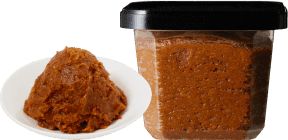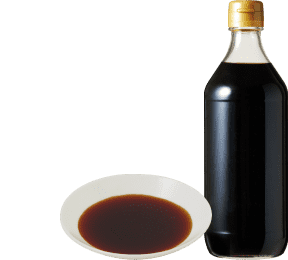RICE
VINEGAR
Study UMAMI


Miso, soy sauce, mirin sweet seasoning, and rice vinegar are known to be indispensable seasonings in Japanese diet. These seasonings are produced by fermenting microorganism called koji fungus. Its unique, rich flavor is featured in dishes throughout the four seasons in Japan. The seasonings particularly crafted by the hands of the artisan not only enrich the flavor of the dish, but also can contain less additives. They are delicious and make your body happy. This section introduces rice vinegar among these fermented seasonings.
About
RICE VINEGAR
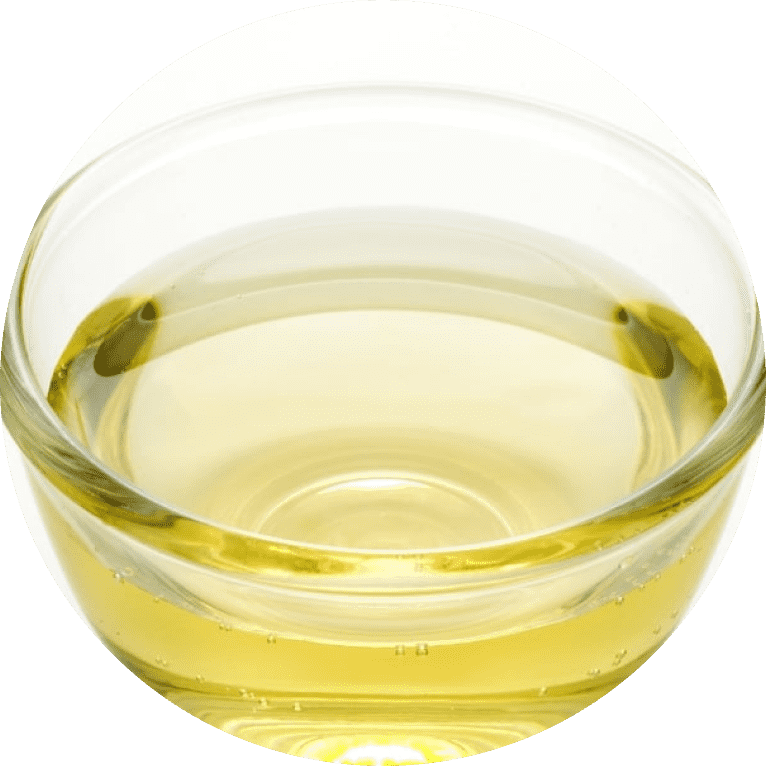
History of rice vinegar
Rice vinegar is a historic seasoning that is believed to be first created around the 4th to 5th century.
It is also believed that it was during the Edo period (*1) rice vinegar began to be generally used. The ingredients are rice and water. The major rice vinegar making method in present day is making koji from rice first and make unrefined SAKE from rice koji. Then unrefined SAKE is diluted with water which is one half or one third volume of refined SAKE. Bacteria called acetic acid bacteria are added for fermentation. The acetic acid bacteria break down the alcohol, which changes SAKE into rice vinegar.
(*1) Japanese historical period. Indicates approximately 265 years from 1603 to 1867.
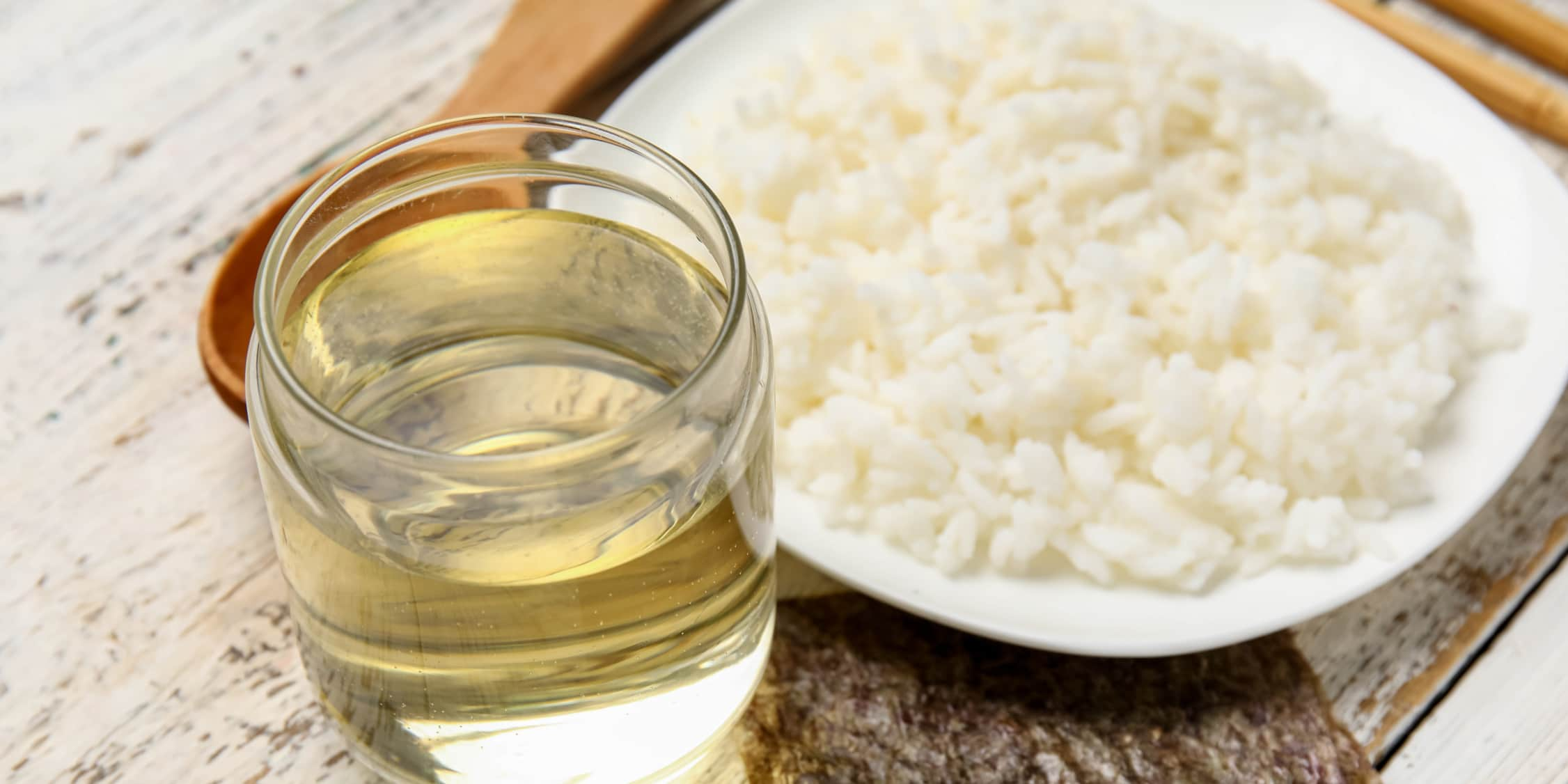
Characteristics unique to Japanese rice vinegar
Rice vinegar was not only used for food but also used to stabilize the pigments in indigo dyeing for garments.
It is said since indigo dyeing widespread across Japan during the Edo period, mass production of vinegar began then. Nowadays the rice used in SUSHI is vinegared, but the history of SUSHI culture tells us that NARE-ZUSHI, which goes through slow lactic acid fermentation by combining rice and fish, is the origin of SUSHI. It is believed that vinegar, which possesses an antimicrobial effect, began to be used in order to more easily make SUSHI. Japanese vinegar contains umami and is characterized by a mellow acidity and rounded flavor.
Uncompromising work of the artisans
For mass-produced rice vinegar, the vinegar is agitated using a machine while sending air into it in order to speed up fermentation.
On the other hand, the number of breweries that make vinegar using natural convection are extremely limited. It takes time and effort, but naturally-brewed vinegar has richness, umami, and sweetness that allows one to taste the fullness of koji compared to mass-produced vinegar.
Health benefits
Rice vinegar contains substances, including vitamins and organic acids made from koji,
that are often used in supplements. Rice vinegar is believed to clear the skin and promote healthy bowl movements.

Aspirations of RICE VINEGAR makers
Rice vinegar is indispensable in the Japanese diet culture. What goes through rice vinegar makers’ minds and what do they do daily to make flavorful rice vinegar? We interviewed Mr. Yasuhiko Kobara, the representative of KOBARA VIENGAR, who makes rice vinegar in Fukui Prefecture.
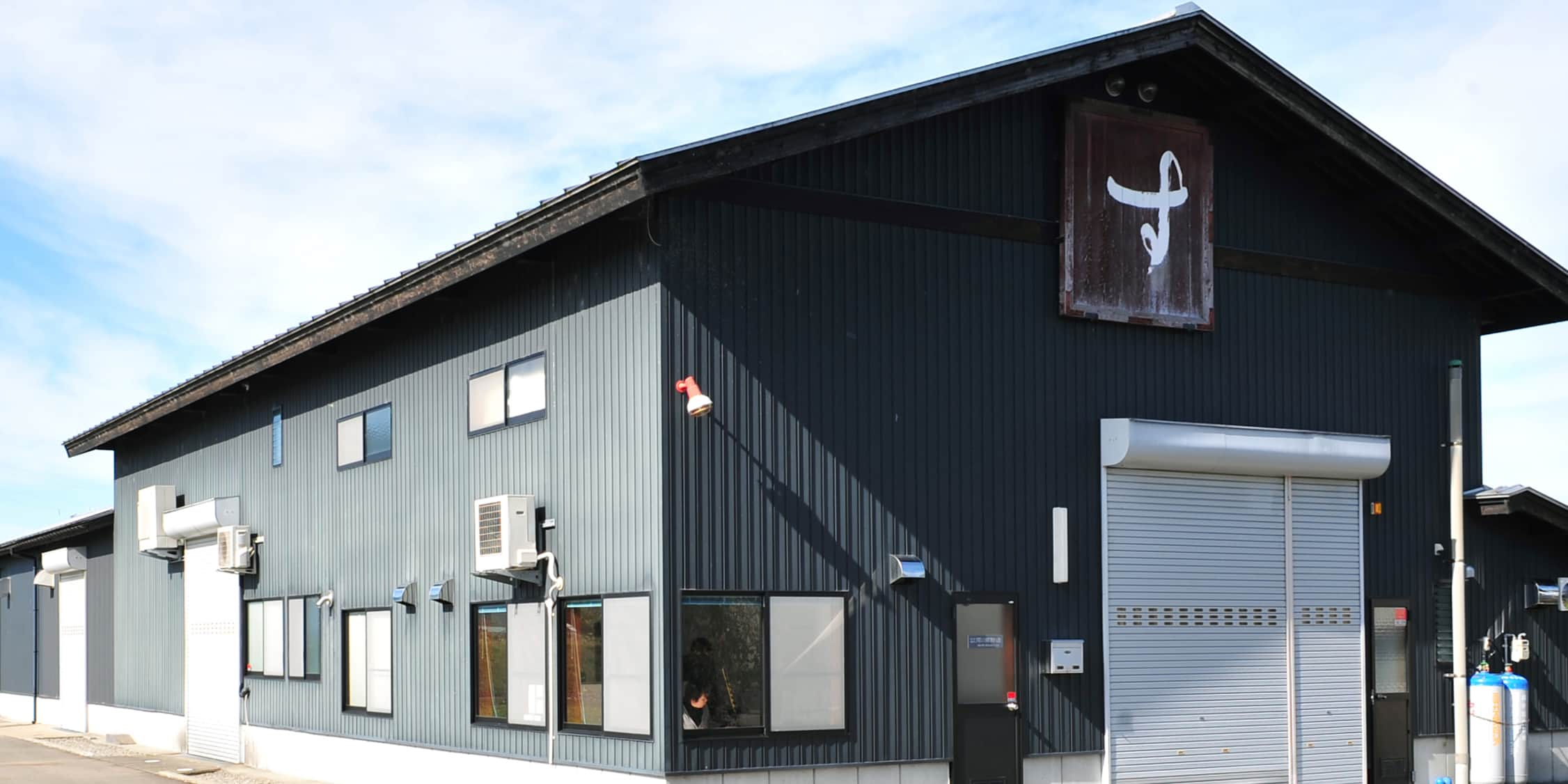
It begins with growing rice in the rice field. An uncompromising rice vinegar making method using carefully selected ingredients and brewing method.
What do you especially care about when making rice vinegar at KOBARA VINEGAR?
Kobara:
I’d say we start making vinegar from growing organic rice. The quality of rice, which is one of the ingredients, is very important. When I decided to take over my family business, I went to an agricultural corporation in Niigata to study how to cultivate rice.
We are also particular about the brewing method. We make rice vinegar using a time-tested, traditional method.
Once the rice is harvested, we carefully rinse the rice and make koji by hand a little bit at a time. Then, we brew SAKE and pour it into a 2-meter-deep tank together with acetic acid bacteria. Acetic acid bacteria break down the alcohol and spreads over the liquid’s surface. The Acetic acid bacteria become activated and break down more alcohol. The bacteria become activated due to the alcohol. The liquid is left for three months without stirring. Inside the tank the liquid slowly circulates over time to create rice vinegar. It is said that rice vinegar produced in this method is less than 1% of the overall rice vinegar production in Japan.
I heard koji is made only by you. Please tell us the key elements that you think are important.
Kobara:
When you make koji by hand, it is often made by piling it up in a thick layer in a limited space. However, once a large amount of koji is piled up, it begins to give off a distinctive odor like humid, damp smell. In my case, I spread koji thinly so that the humidity won’t get trapped and as a result the rice vinegar made with such koji smells refreshing and fruity. I can say that is the characteristic of our rice vinegar.

What recipe do you recommend using rice vinegar made by KOBARA VINEGAR?
Kobara:
Simply dip GYOZA in vinegar and black pepper, instead of soy sauce and chili oil. Rice vinegar neutralizes the fat from the meat and brings out the flavor, so you can enjoy non-greasy GYOZA. Instead of citrus juice you can also sprinkle some rice vinegar over grilled fish to eliminate fishiness and saltiness.
For western food rice vinegar can be used for dressings and marinading. In Europe and the United States, many of vinegars are sweet and fruit-derived, such as apple and grape vinegars. Since rice vinegar has a sharper taste, I think you can enjoy a different flavor if you substitute your regular vinegar with rice vinegar.
KOBARA VINEGAR exports vinegar overseas. What feedback have you received so far?
Kobara:
We have exported our products to the United States, Canada, Australia, Finland, and Switzerland so far. The points of sales are mostly retailers, and there is a tendency of our vinegars being used in ordinary households. The feedback that struck me the most was “the acidity is mild and my children who don’t care for vinegar enjoyed your vinegar.”
Lastly, please tell us what you’d like to promote to people overseas.
Kobara:
I think our rice vinegar has a characteristic of bringing out the best of the ingredients. Please try use our rice vinegar in various Japanese foods to enjoy the characteristic of “bringing out the flavor of the ingredients.”
Learn about other
seasonings

